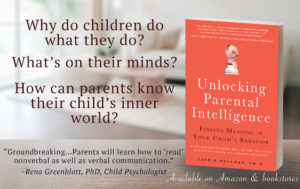Watching Out for the Perfect Child
What is the Perfect Child?
Deep inside do you look for the perfect child? Does your child expect herself to be perfect? Does your child get all A’s, do her homework ahead of time, have pleasant manners, tell the truth, always do what she is told, in fact, please you every second? Take a second look. May sound unexpected, but why is she so good?
We have to look out for our “good” kids because sometimes they want to please us too much instead of finding out what pleases them!
Does Your Child Make You Proud Because She’s Always Pleasing?
Some children are just cheerful. They are a delight from the time they are born. They sense what others want and always meet expectations. They seem to develop a keen sense of what others need early on and make others happy. They never complain or challenge others. They know how to be a good friend because they are such good listeners.
The Hidden Problem
This is the child you always wanted. But wait a minute…Why doesn’t she challenge others? What are her opinions? Why don’t her needs ever come first? Is she trying too hard to be PERFECT?
This may be a child who masks her feelings on the outside or doesn’t even know when she feels differently from others. The potential problem isn’t getting to know herself: her wishes, needs, feelings, intentions, hopes and goals.
This is the child you need to help get to know herself. It’s pleasant that she’s so easy to be around, but is she growing?
Eight Tips for Helping the Perfect Child Get to Know Herself
- Ask her to make choices about what she’d prefer to do.
- Ask her opinions about what other kids say and do.
- Notice that wrinkled brow, and question what’s on her mind. Then, ask again, to get an answer that may not be what she thinks you want to hear.
- Ask her if she ever wants to be the leader of her friend group instead of doing what other’s plan. Remember this is hard for her—to think for her herself. So take suggest she takes her time thinking about this question.
- Ask her what she doesn’t like to do. Then encourage her to think how she can get what she wants to do.
- Help her build interests of her very own. Let her try a few things and even quit if she decides it wasn’t really what she wanted.
- If there’s any slight clue something ticks her off, encourage her to spill out a little disappointment and anger.
- When you start hearing her very own thoughts, encourage them, and praise her for thinking for herself.
Building an Identity
Parents often think identity development is for teenagers, but it actually starts very young. If you don’t see your six-year-old showing likes and dislikes but always going along with others, catch this too-pleasing personality early by paying special attention to his interests. Begin to praise differences from others instead of always going along with the pack. Of course a pleasing personality is a fine trait, but not at the expense of developing a secure sense of self.
 Laurie Hollman, Ph.D. is a psychoanalyst whose book, Unlocking Parental Intelligence: Finding Meaning in Your Child’s Behavior, on Amazon will inspire you with a new parenting outlook.
Laurie Hollman, Ph.D. is a psychoanalyst whose book, Unlocking Parental Intelligence: Finding Meaning in Your Child’s Behavior, on Amazon will inspire you with a new parenting outlook.